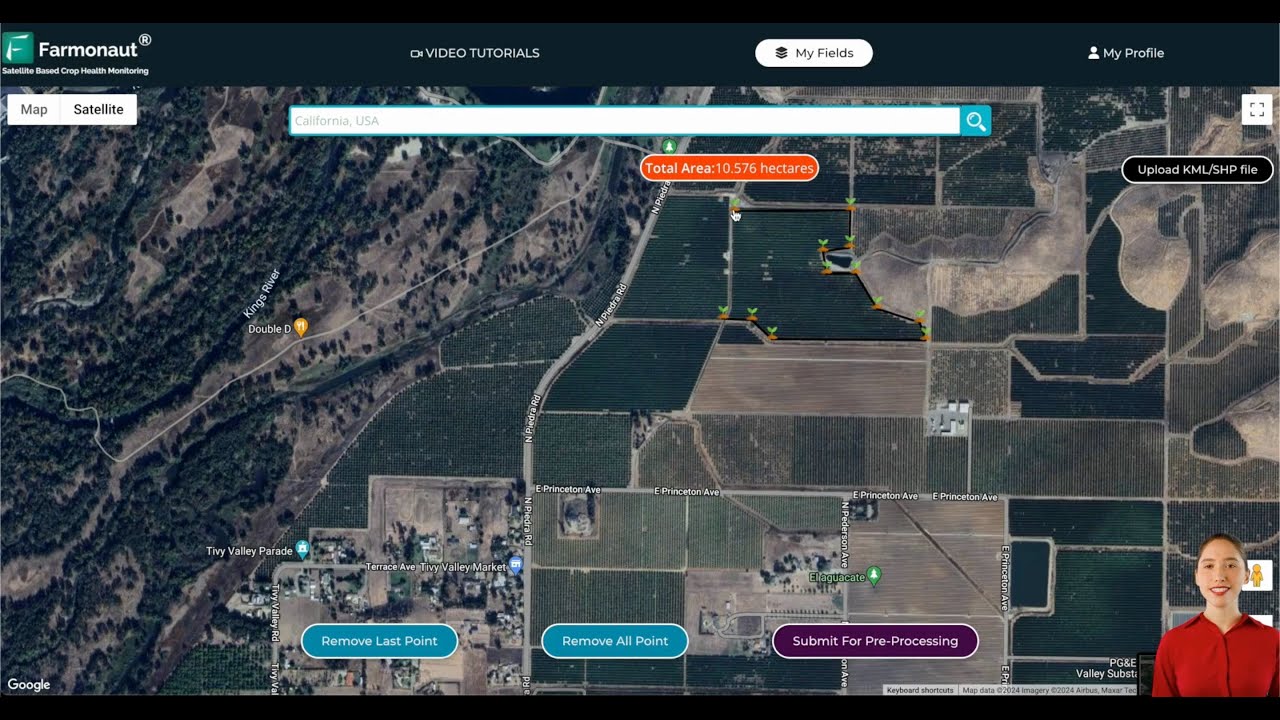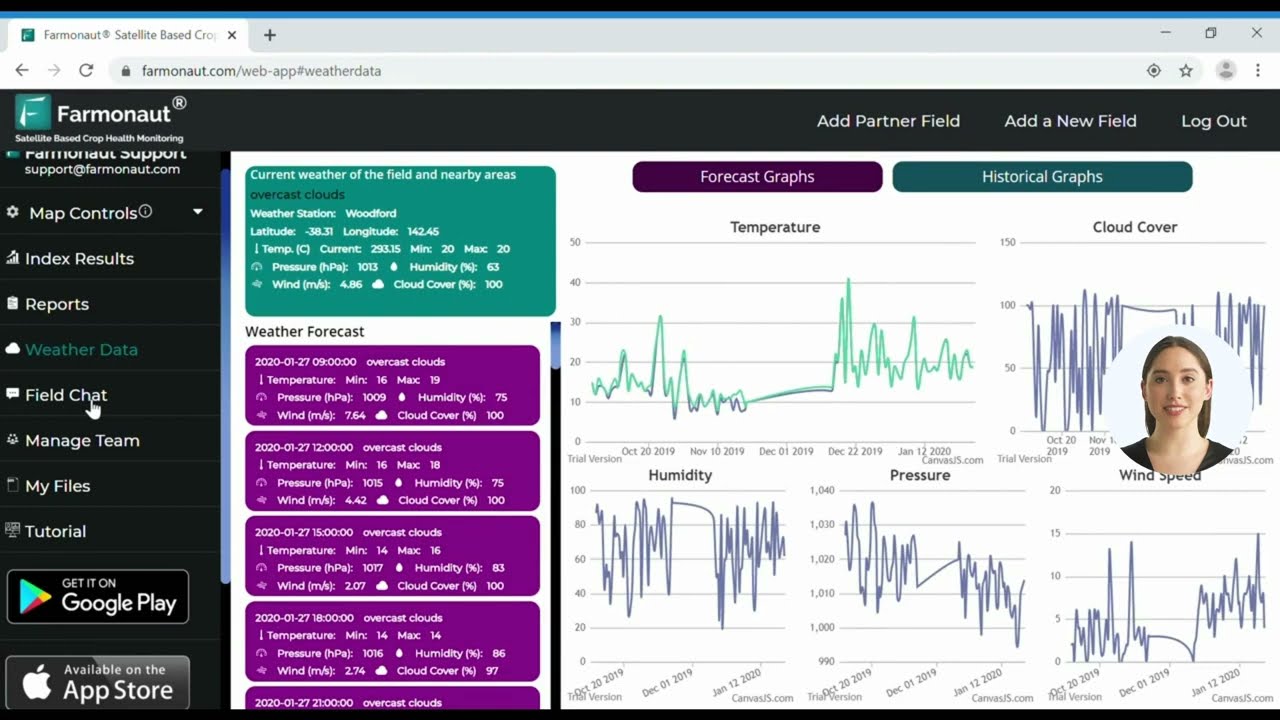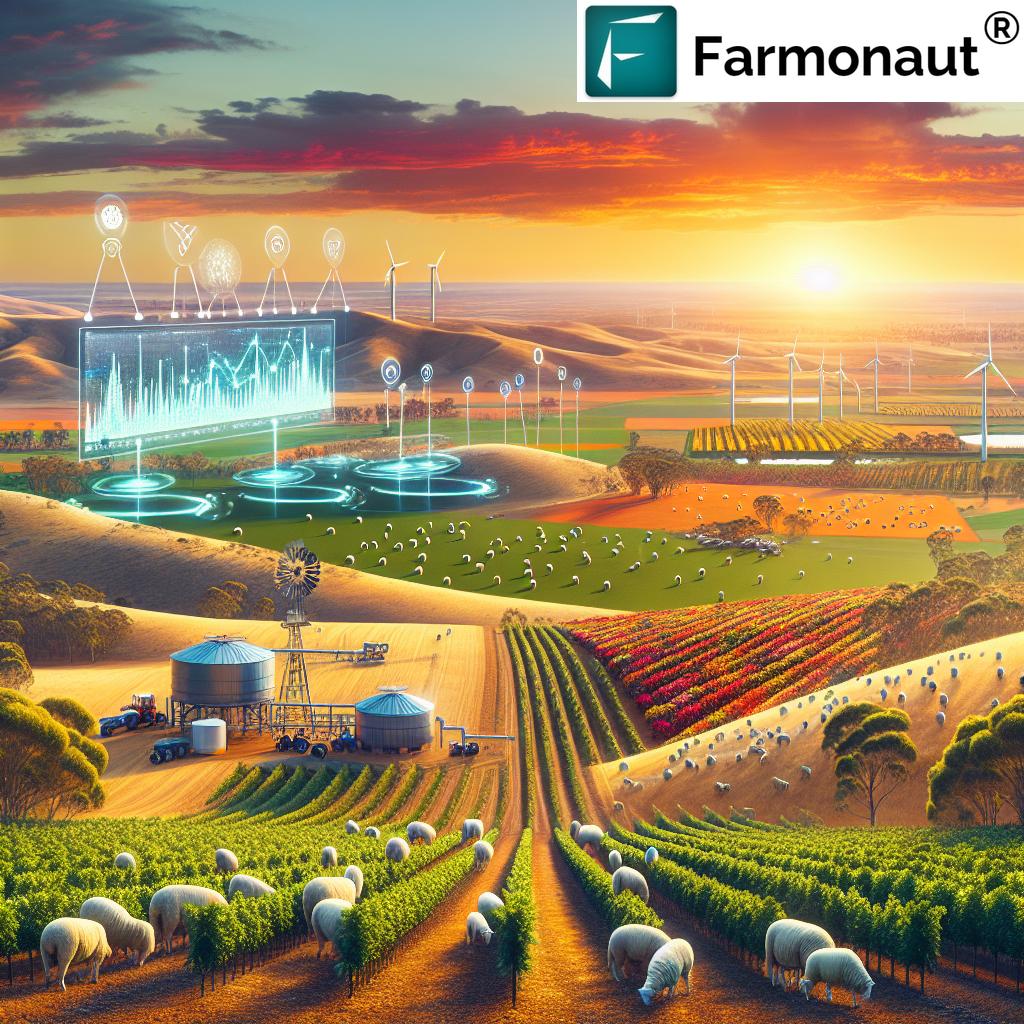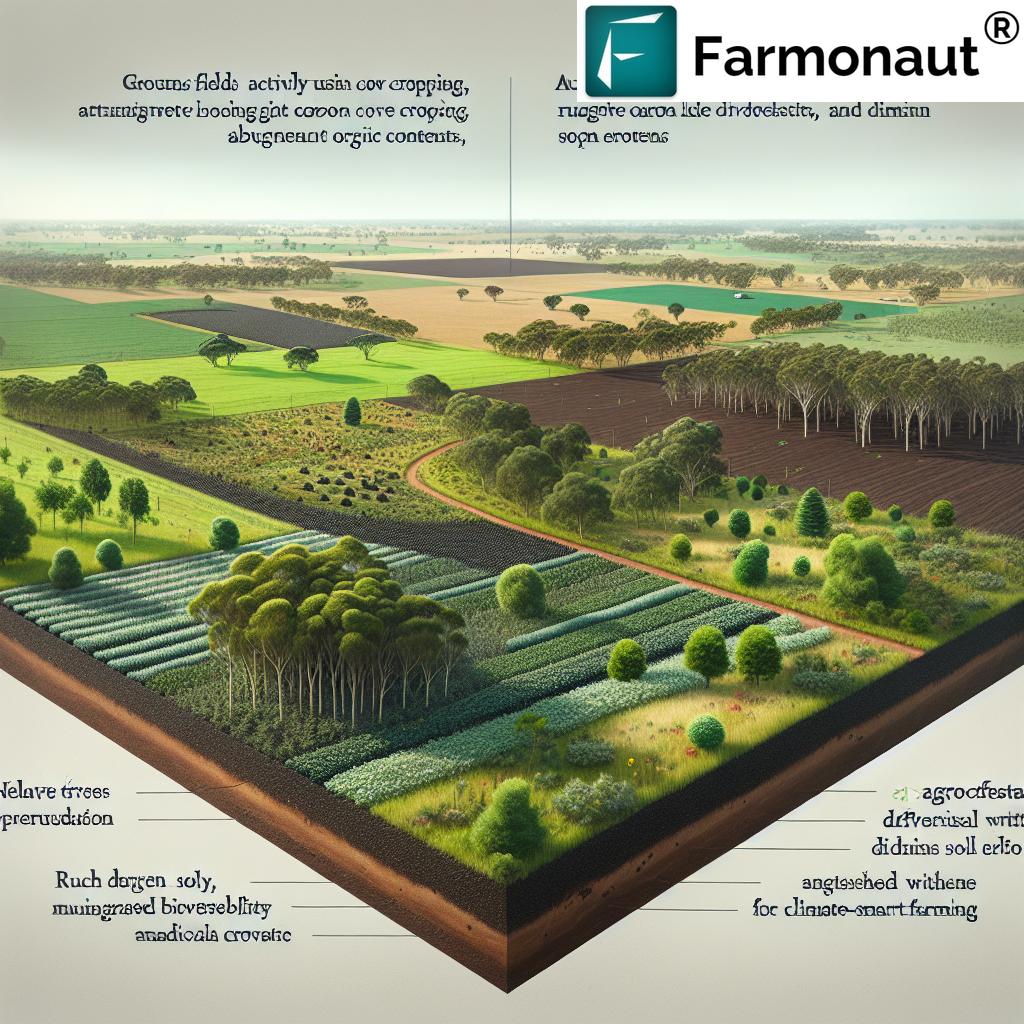Revolutionizing Water Security: Sustainable Irrigation Solutions for Queensland’s Boyne River Agricultural Development

“The Boyne River Irrigation Area in Queensland faces challenges with up to 30% water distribution losses, impacting agricultural productivity.”
In the heart of Queensland, Australia, the Boyne River Irrigation Area stands as a testament to the critical intersection of water security in agriculture and sustainable farming practices. As we delve into this comprehensive analysis, we’ll explore how irrigation technology and agricultural water management are poised to reshape the landscape of rural economic development and crop diversification in this vital region.
The challenges faced by farmers in the Boyne River area due to unpredictable water allocations and significant distribution losses highlight the pressing need for smart irrigation systems and precision agriculture. In this blog post, we’ll uncover a proposed solution to enhance water reliability and examine its potential economic and social benefits for the region.
The Current State of Water Management in the Boyne River Area
The Boyne River Irrigation Area, located in southern Queensland, is a crucial agricultural hub that has long grappled with water security issues. The region’s farmers face several challenges:
- Unpredictable water allocations
- High distribution losses (up to 30%)
- Limited crop diversification opportunities
- Economic instability due to water insecurity
These challenges have led to a pressing need for innovative solutions that can revolutionize water management in the area. The implementation of sustainable irrigation practices is not just a matter of environmental concern; it’s a critical factor in ensuring the economic viability of the region’s agricultural sector.
The Role of Irrigation Technology in Sustainable Farming
Irrigation technology plays a pivotal role in addressing the water security challenges faced by the Boyne River area. Advanced irrigation systems can significantly improve water efficiency in farming, leading to numerous benefits:
- Reduced water waste
- Increased crop yields
- Enhanced ability to grow high-value crops
- Improved resilience to drought conditions
By leveraging smart irrigation systems and precision agriculture techniques, farmers can optimize their water usage, ensuring that every drop counts. This not only conserves water but also contributes to the overall sustainability of farming practices in the region.
Proposed Solutions for Enhanced Water Security
To address the water security challenges in the Boyne River Irrigation Area, a comprehensive solution has been proposed. This solution encompasses several key components:
- Infrastructure Upgrades: Modernizing existing dams and weirs to improve water storage capacity and reduce losses.
- Smart Water Distribution Systems: Implementing advanced monitoring and control systems to optimize water distribution and minimize losses.
- Adoption of Precision Agriculture: Encouraging the use of technologies like satellite-based crop monitoring and AI-driven irrigation scheduling.
- Water-Efficient Crop Selection: Promoting the cultivation of crops that are well-suited to the local climate and have lower water requirements.
These solutions aim to create a more reliable and efficient water supply system for irrigators in the Boyne River area, paving the way for sustainable agricultural practices and economic growth.
The Economic and Social Impact of Improved Water Security
The implementation of sustainable irrigation solutions in the Boyne River Agricultural Development is expected to have far-reaching economic and social impacts:
- Increased Agricultural Production: With more reliable water access, farmers can expand their operations and increase yields.
- Crop Diversification: Improved water security allows for the cultivation of a wider range of crops, including high-value varieties.
- Job Creation: The expansion of agricultural activities will create new employment opportunities in the region.
- Rural Economic Growth: A thriving agricultural sector will stimulate growth in related industries and services.
- Youth Retention: Improved economic prospects can help retain young people in rural communities, addressing the issue of rural depopulation.
These benefits collectively contribute to building a more resilient and prosperous rural economy in the Boyne River area.
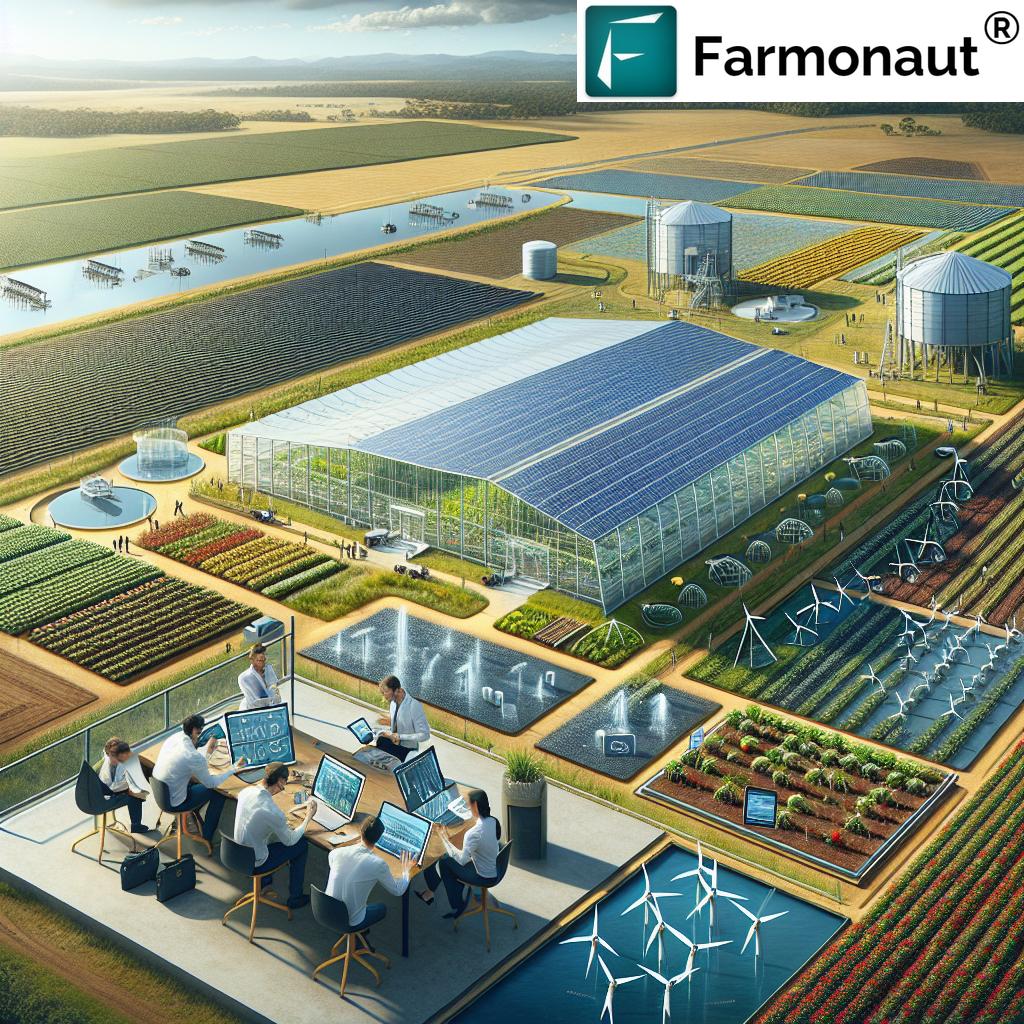
Agritech Solutions: The Future of Farming in Queensland
The integration of agritech solutions is crucial in revolutionizing farming practices in the Boyne River area. These technologies offer numerous benefits:
- Satellite-Based Crop Monitoring: Allows for real-time assessment of crop health and water needs.
- AI-Driven Irrigation Systems: Optimize water usage based on precise crop requirements and weather forecasts.
- Blockchain-Based Traceability: Enhances supply chain transparency and product authenticity.
- IoT Sensors: Provide real-time data on soil moisture, temperature, and other critical parameters.
These technologies not only improve water efficiency but also contribute to overall farm productivity and sustainability.
“Improved water efficiency in the Boyne River region could potentially increase crop yields by 25% and boost rural economic growth by 15%.”
Environmental Sustainability and Water Management
Sustainable water management in the Boyne River area is not just about economic benefits; it’s also crucial for environmental sustainability. Here’s how improved irrigation practices contribute to environmental conservation:
- Reduced Water Extraction: Efficient irrigation systems minimize the need for excessive water extraction from the river.
- Preservation of Ecosystems: Balanced water use helps maintain the health of the river ecosystem and surrounding habitats.
- Soil Health: Precision irrigation prevents soil degradation and salinity issues associated with over-irrigation.
- Carbon Footprint Reduction: Optimized water pumping and distribution systems can significantly reduce energy consumption and associated carbon emissions.
By adopting sustainable irrigation practices, the Boyne River Agricultural Development can become a model for environmentally responsible farming.
The Role of Policy and Government Support
Realizing the full potential of sustainable irrigation solutions in the Boyne River area requires supportive policies and government initiatives. Key areas of focus include:
- Infrastructure Investment: Government funding for upgrading irrigation infrastructure and implementing smart water management systems.
- Incentives for Technology Adoption: Programs to encourage farmers to adopt water-efficient technologies and practices.
- Research and Development Support: Funding for ongoing research into water-efficient farming methods and crop varieties suited to the local climate.
- Education and Training: Initiatives to upskill farmers in the use of new irrigation technologies and sustainable farming practices.
These policy measures can create an enabling environment for the transformation of agricultural practices in the region.
Comparative Analysis: Current Situation vs. Projected Improvements
| Aspect | Current Situation | Projected Improvements with Sustainable Irrigation |
|---|---|---|
| Water Allocation Reliability | Unpredictable, subject to frequent shortages | Stable and reliable year-round supply |
| Distribution Losses | Up to 30% | Reduced to less than 10% |
| Agricultural Production | Limited by water availability | 25% increase in crop yields |
| Crop Diversification | Limited options due to water constraints | Ability to grow a wide range of high-value crops |
| Economic Impact (estimated figures in AUD) | Current agricultural output: $100 million annually | Projected output: $150 million annually |
| Youth Retention in Rural Areas | High rate of youth migration to urban areas | Increased retention due to improved job prospects |
| Environmental Sustainability | Concerns over water overuse and ecosystem impact | Improved river health and reduced environmental footprint |
| Workforce Development | Limited skilled labor in advanced farming techniques | Growth in skilled agricultural workforce |
| Community Growth | Stagnant or declining rural populations | Revitalized rural communities with population growth |
Case Study: Success Stories from Similar Initiatives
While we don’t have specific case studies from the Boyne River area, similar initiatives in other parts of Australia and the world have shown promising results:
- Murray-Darling Basin: Implementation of water-saving technologies led to a 20% increase in water use efficiency.
- Israel’s Negev Desert: Advanced irrigation techniques transformed arid land into productive agricultural areas.
- California’s Central Valley: Precision agriculture reduced water usage by 30% while maintaining crop yields.
These examples demonstrate the potential for success in the Boyne River Agricultural Development with the implementation of similar sustainable irrigation solutions.
The Role of Technology in Sustainable Water Management
Advanced technology plays a crucial role in implementing sustainable water management practices. Here are some key technologies that can revolutionize irrigation in the Boyne River area:
- Satellite-Based Crop Monitoring: This technology allows farmers to track crop health and water needs in real-time. By using multispectral imagery, farmers can identify areas of stress in their fields and apply water more precisely where it’s needed most.
- AI-Powered Irrigation Systems: Artificial Intelligence can analyze data from various sources, including weather forecasts, soil moisture sensors, and crop growth stages, to optimize irrigation schedules and amounts.
- IoT Sensors: Internet of Things (IoT) devices placed throughout fields can provide continuous data on soil moisture, temperature, and other critical parameters, enabling more informed decision-making.
- Drone Technology: Drones equipped with thermal cameras can detect water stress in crops before it becomes visible to the naked eye, allowing for early intervention.
- Weather Forecasting Integration: Advanced weather forecasting models integrated with irrigation systems can help farmers prepare for upcoming weather events and adjust their water management accordingly.
These technologies not only improve water efficiency but also contribute to overall farm productivity and sustainability. By adopting these innovative solutions, farmers in the Boyne River area can significantly enhance their water management practices.
Economic Multiplier Effects of Improved Water Security
The implementation of sustainable irrigation solutions in the Boyne River Agricultural Development is expected to have far-reaching economic impacts that extend beyond the farming sector. These multiplier effects include:
- Agribusiness Growth: Increased agricultural production will stimulate growth in related industries such as food processing, packaging, and transportation.
- Tourism Boost: A thriving agricultural landscape can attract agritourism, bringing additional revenue to the region.
- Research and Development Opportunities: The focus on innovative farming practices can attract research institutions and agritech companies to the area.
- Skills Development: The adoption of new technologies will create demand for skilled workers, potentially leading to the establishment of specialized training programs and educational institutions.
- Infrastructure Development: Improved economic conditions can lead to investments in local infrastructure, benefiting the entire community.
These economic multiplier effects demonstrate how investing in sustainable irrigation solutions can create a ripple effect of benefits throughout the region’s economy.
Challenges and Considerations in Implementing Sustainable Irrigation Solutions
While the benefits of sustainable irrigation solutions are clear, their implementation in the Boyne River area is not without challenges. Some key considerations include:
- Initial Investment Costs: The upfront costs of implementing new irrigation technologies and infrastructure upgrades can be significant.
- Farmer Adoption: Encouraging farmers to adopt new technologies and practices may require extensive education and support programs.
- Water Rights and Allocations: Changing water management practices may require adjustments to existing water rights and allocation systems.
- Environmental Impact Assessments: Ensuring that new irrigation practices do not negatively impact the river ecosystem will require thorough environmental studies.
- Balancing Competing Interests: Managing the needs of various stakeholders, including farmers, environmental groups, and urban water users, will be crucial.
Addressing these challenges will require a collaborative approach involving farmers, government agencies, environmental experts, and technology providers.
The Future of Farming in the Boyne River Area
As we look to the future, the implementation of sustainable irrigation solutions in the Boyne River Agricultural Development holds the promise of transforming the region into a model of modern, efficient, and environmentally responsible farming. This transformation is likely to include:
- Smart Farms: Fully integrated farming systems that use data and automation to optimize all aspects of crop production.
- Diverse Crop Portfolio: A shift towards a more diverse range of crops, including high-value and climate-resilient varieties.
- Circular Economy Practices: Integration of waste reduction and recycling practices in agricultural operations.
- Community-Centric Development: Agricultural development that not only focuses on productivity but also on building resilient rural communities.
- Climate Change Adaptation: Farming practices that are adaptable to changing climate conditions, ensuring long-term sustainability.
By embracing these future-focused approaches, the Boyne River area can position itself as a leader in sustainable agriculture, setting an example for other regions facing similar water security challenges.
Conclusion: A Path to Sustainable Agricultural Prosperity
The journey towards revolutionizing water security in the Boyne River Agricultural Development is a critical endeavor that promises to transform not just the agricultural landscape but the entire socio-economic fabric of the region. By implementing sustainable irrigation solutions, leveraging cutting-edge technology, and fostering a culture of innovation and environmental stewardship, we can create a future where:
- Farmers have reliable access to water, enabling them to maximize productivity and explore new crop opportunities.
- The local economy thrives, driven by a robust and diversified agricultural sector.
- Rural communities are revitalized, retaining youth and attracting new residents with promising job prospects.
- The natural environment, particularly the Boyne River ecosystem, is protected and preserved for future generations.
As we move forward, it is crucial that all stakeholders – farmers, policymakers, technology providers, and community members – work together to turn this vision into reality. The path ahead may have challenges, but the potential rewards for the Boyne River area and beyond are immeasurable. By embracing sustainable irrigation solutions, we are not just securing water; we are securing a prosperous and sustainable future for Queensland’s agricultural heartland.
FAQ Section
- Q: What are the main challenges facing the Boyne River Irrigation Area?
A: The main challenges include unpredictable water allocations, high distribution losses (up to 30%), limited crop diversification opportunities, and economic instability due to water insecurity. - Q: How can sustainable irrigation solutions benefit the region?
A: Sustainable irrigation solutions can lead to increased agricultural production, improved water efficiency, crop diversification, job creation, and overall rural economic growth. - Q: What role does technology play in improving water security?
A: Technology such as satellite-based crop monitoring, AI-driven irrigation systems, and IoT sensors can optimize water usage, improve crop yields, and enhance overall farm management. - Q: How might improved water security impact the local community?
A: Improved water security can lead to job creation, youth retention in rural areas, community growth, and a more stable and prosperous local economy. - Q: What are some of the environmental benefits of sustainable irrigation practices?
A: Environmental benefits include reduced water extraction, preservation of river ecosystems, improved soil health, and a reduced carbon footprint through optimized water management.
For more information on how satellite-based technologies can revolutionize farming practices, visit Farmonaut’s web app or explore our API services.
You can also download our mobile apps for on-the-go farm management:
For developers interested in integrating our satellite and weather data into their systems, check out our API Developer Docs.


